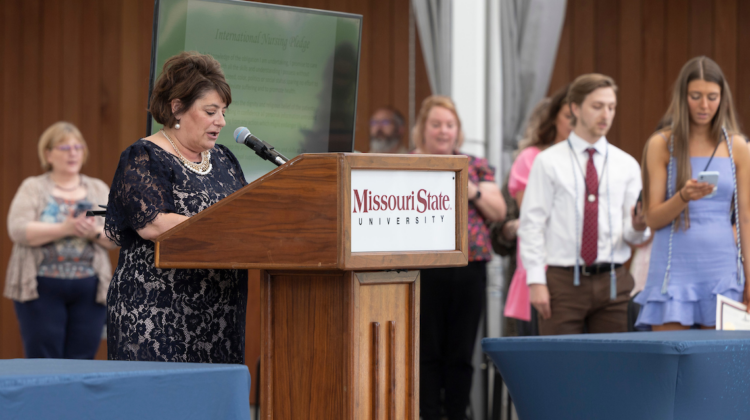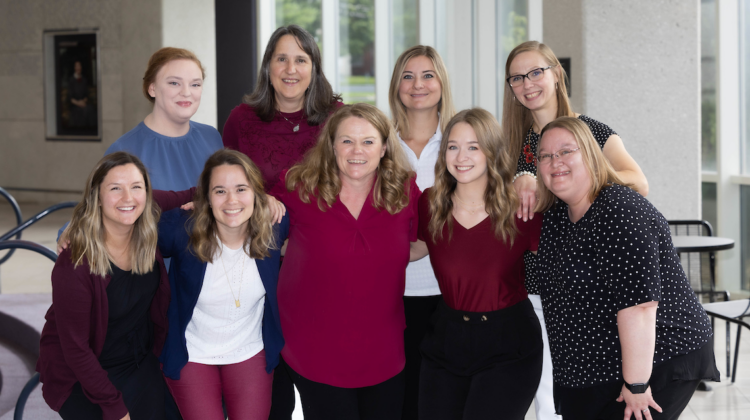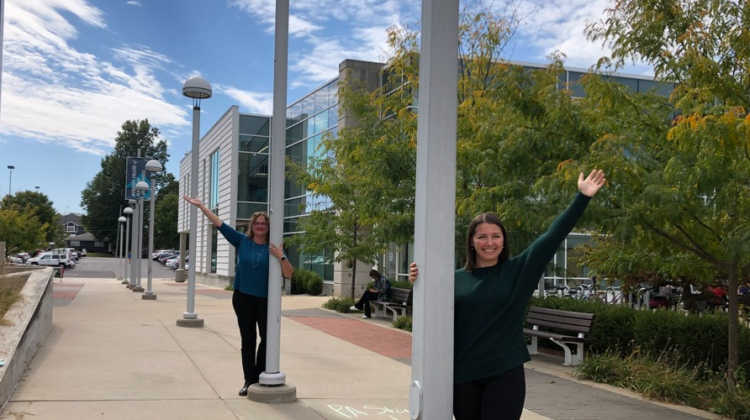The McQueary College of Health and Human Services (MCHHS) is proud to announce that 135 students were hooded, pinned or received a white coat within a department or school ceremony for the fall 2023 semester.
“These ceremonies are crucial in offering the space to celebrate MSU students who have worked hard to excel,” said MCHHS Dean Dr. Mark Smith.
Students who were hooded or pinned will be graduating, while those who received a white coat will progress to clinical placements.
Occupational therapy (OT)
Twenty-five Master of OT students were hooded.
Nursing
Forty-five Bachelor of Science in Nursing students were pinned.
Communication sciences and disorders
Thirty-two speech-language pathology students were pinned.
Physician assistant studies (PAS)
Thirty-three PAS students received white coats.




